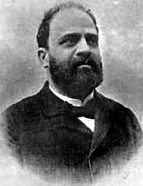

It is time to speak of Coelho the linguist, due to the large number of contributions made to that science in Adolfo Coelho's name. In his debut book, the first that Leite de Vasconcelos acknowledged reading on linguistics, on the recommendation of his professor Epifânio da Silva Dias (thus, double surety of authority), Adolfo Coelho studied 'the organism of language in its elements - the sounds, forms and set of processes by which words come together in simple sentences and simple sentences into compound sentences, syntax’ (A lingua portugueza: phonologia, etymologia, morphologia e syntaxe, 'The Portuguese Language: Phonology, Etymology, Morphology and Syntax', 1868, p. iii). He followed Diez's historical-comparative model and, more generally, 'work in Germany, Britain and France, but especially in the first of these nations, which founded glottics, or the science of language, works of which some results were revealed in this book, and that, because of their importance, for matters of primary interest upon which they cast an unexpected light, will garner more attention from the civilised world day by day" (Idem., p. v). The youthful idealism of these words marries well with the scientific novelty and with the planned work it announces, but only partly fulfils: "A History of the Portuguese language, an etymological dictionary of this language, a glossary of archaic and provincial Portuguese shall complement our research in the field of the language we first spoke." (idem, p. iv). In this programme, one should not read solely a curiosity to acquire knowledge and to facet it with modern instruments. Adolfo Coelho's driving force lay in his convictions of social and cultural transformation, faced with a country of illiterate people, with schools that did not distinguish between secular education and religious education, with universities producing rhetoric and illusions. Thus, the justification for Adolfo Coelho's book (leading to the introduction of modern linguistics) is found in his urgency to combat the state of ignorance in which Portuguese philology found itself at the time: 'When we first began to be introduced to the work of modern foreign philologists, we sadly saw that Portuguese philology was completely oblivious to the progress that the science of language, or glottics, to use the best of the names it has been given, had made in those nations whose intellectual development we matched at other times. In the field of philology, Portugal is more or less at the point where these nations were at the beginning of this century. "(Idem, p. vii). On the pages that follow, as proof he unfolded harsh criticism of recent works, such as the Dictionary of D. José de Lacerda and Génio da Língua Portuguesa (Genius of the Portuguese Language) by Francisco Leoni, chastising the Celtic theories of António Ribeiro dos Santos and Cardinal Saraiva along the way, and insulting Inocêncio for the appreciation he displayed for Lacerda. In concluding the introduction of his book, on page xix, young Coelho had not only made clear what was to come, but had also made enemies of half a dozen scholars, both living and dead. For his scientific exigency, his arrogance and his lack of tact, he was consecrated as the just forerunner of a discipline that, in Portugal, abounds in these same virtues.
